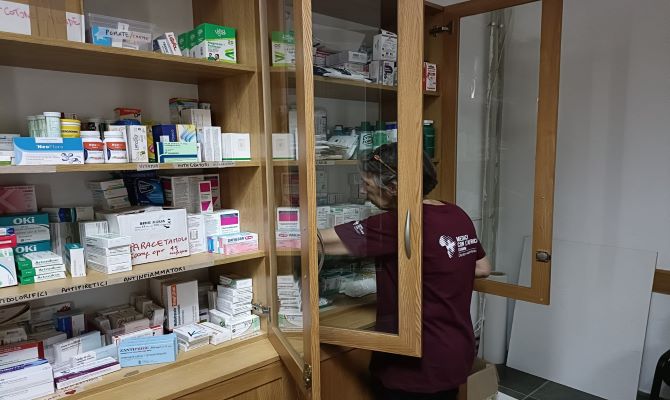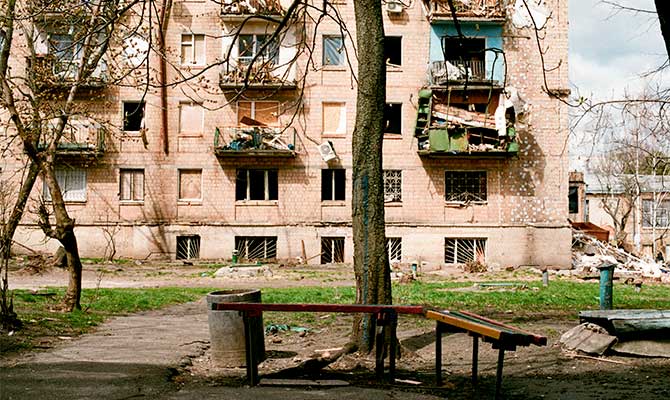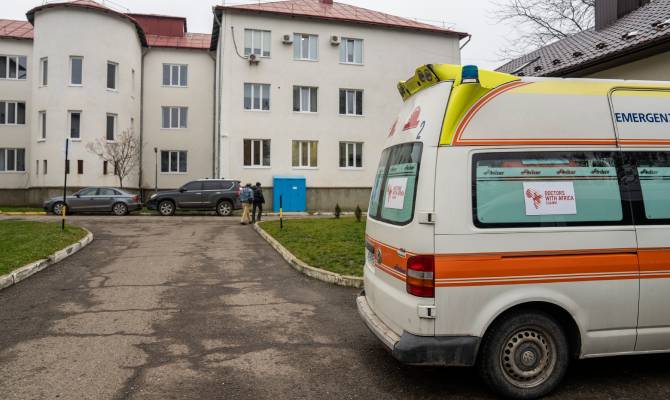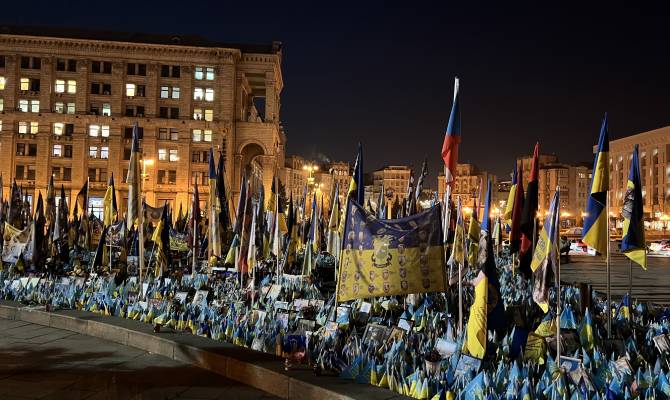When Romani children are on examination, it is common to perceive a sense of distrust so you try to explain what they have and what you are prescribing. After that they take the drugs needed from the drug closet and leave. You never know whether they will follow your directions or not and most of the times if you schedule them a follow-up after a few days, you hardly see them again. This is something we were aware of, having already had the opportunity to work with itinerant people. It is different with Ukrainians mothers since they generally have good knowledge of medicine, in fact, doctors must be careful because they check on prescriptions and control that the doses are right for the child. They probably want us to recognize their competencies which cannot be underestimated, not even in emergencies. / They probably want us to understand that this is not a limited resources country as those in which we usually work hence, they want their competencies to be recognized.
At the present moment, Cuamm is working in two centres in Chisinau: MoldExpo that hosts mainly Ukranians and Testemitanu where the majority are the Romani. About 120 people are housed there, about 1/3 are children, and there is a steady turnover of arrivals from Ukraine and departures, for a hoped-for return home or to other European countries. The upcoming problem is how they will cope with the cold season, given the lack of heating in both centers.
Molti sono gli anziani che visitiamo e sembrano affidarsi più volentieri. Di fondo, tutti vivono il loro stato di rifugiati con un grande stato di ansia e preoccupazione, sia giovani che anziani, e questo è spesso causa di insonnia e di rialzo pressorio. Alcuni riescono a scaricare un po’ di tensione quando si siedono per la misurazione della pressione e chiedi loro come stanno, come si sentono. Iniziano così un po’ ad aprirsi e piangendo, in modo sommesso e dignitoso, raccontano la loro pena: vorrebbero ritornare, ma non sanno dove, perché hanno la casa distrutta, pensano al figlio o ai nipoti rimasti sotto i bombardamenti. Alla fine, si alzano dalla sedia e ci ringraziano con lo sguardo e un lieve sorriso.
The elderly assisted everyday are numerous and they seem to be more willing to rely on us. Basically, they all experience their refugee status with a deep anxiety and many concerns, both young and old, and this often lead to insomnia and excessive rise in blood pressure. Some can release tension when they sit down for their blood pressure measurement and you ask them how they are doing, how they are feeling. So they start to open up a little and while crying in a quiet and dignified way, they tell their sorrow: they would like to return home, though where is home now? It is destroyed and all they do is keep thinking of their sons and daughters as of their grandchildren, who stayed under the bombing. At the end, they get up from their chairs and thank us with a look and a faint smile.
Paolo Schievano, paediatrician





